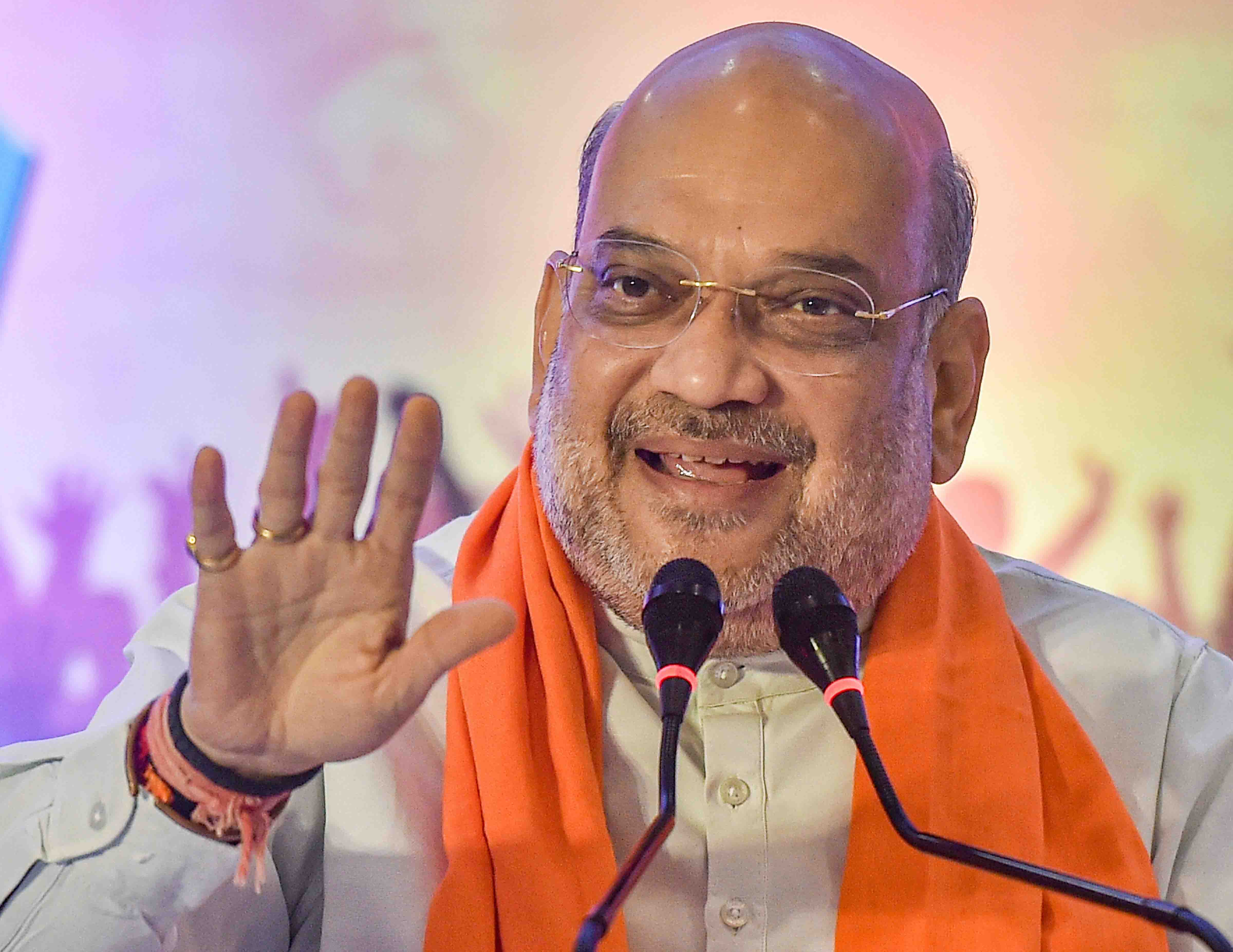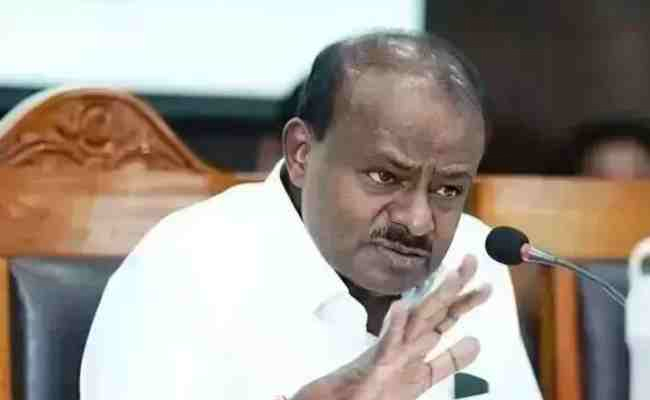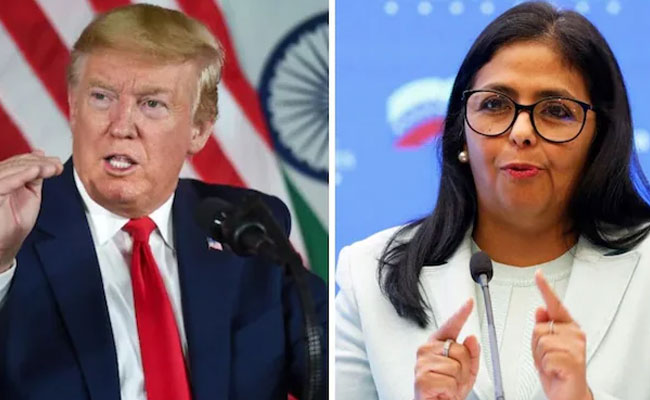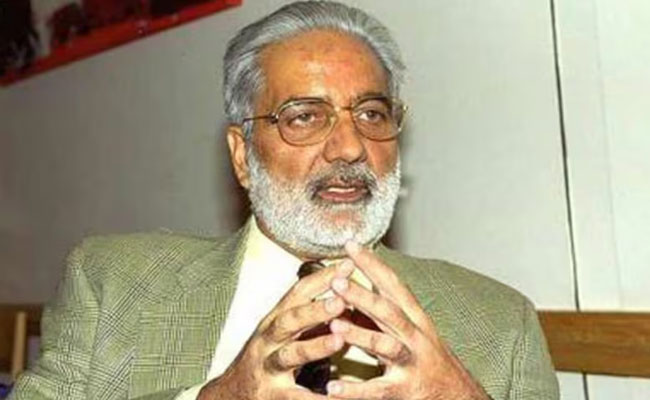New Delhi, Oct 10: Hailing Prime Minister Narendra Modi as a "democratic leader", Union Home Minister Amit Shah on Sunday said even his critics will agree that the Union Cabinet has never functioned in such a democratic manner as it is functioning in the Modi government.
Rejecting allegations that Modi is an autocratic leader, Shah said that he has not seen a "patient listener" like the prime minister, who gives importance to all worthy suggestions given by anyone irrespective of their designation or position in the hierarchy.
In an interview to SANSAD TV, the Union minister said Modi does not hesitate in taking political risks for decisions that are in national interest, and at times has taken bitter decisions for the welfare of the nation.
Responding to a question that opposition and critics term Modi an autocratic leader who takes all decisions on his own, Shah described the prime minister as a "democratic leader".
He is a very patient listener and gives importance to all worthy suggestions irrespective of the person's designation, Shah said.
"...I have closely seen both Modi and his style of working. I have never seen a patient listener like him. Whatever may be the issue, he patiently listens to everyone and speaks least, and then takes a proper decision. He takes decisions patiently after considering suggestions given by all including a small-time official or worker," the home minister said.
Underlining that Modi does not impose his decisions, Shah, a former BJP president, said, "Those who have worked with him or at times there are critics also among those who worked with you, they all would agree that the Union Cabinet never functioned in such a democratic way as it is being run in a democratic manner with Modi ji being the prime minister."
Shah said that Modi insists on discipline and therefore, details of some meetings, which are required to be confidential as they are premature, do not come out in public.
The home minister stressed that decisions in every meeting are taken after collective consultation.
Shah said that Modi has always maintained that he is in power to change the country for the better and not merely to run the government.
Therefore, he does not hesitate in taking harsh and risky decisions which may be against the party's supporters but are in the interest of the nation and the people, the minister said.
Noting that one has to take harsh and tough decisions in national interest, Shah said, "When you crack down on black money, bring economic reforms, seal all loopholes of tax evasion, then some people suffer, those who voted for us for years may also suffer."
"It happens, but they also understand that Modi is not going to get anything out of this, eventually it will benefit the country. So, finally every one associates with Modiji," he said.
Shah listed out various achievements of Modi during his 20-year-long public life, especially of his leadership both as Gujarat chief minister and as prime minister at various critical junctures.
Taking on the opposition, Shah said that some opposition parties assume it is the birth right of their leadership to be in power. But Modi changed this by focusing on people-centric and nation first politics, he said.
Shah said he would request friends from these opposition parties, who criticise the government's policies, that if there is corruption in the present government expose it.
"Expose our failures to the people. But don't lower the political standard by resorting to personal attacks," Shah said.
Let the Truth be known. If you read VB and like VB, please be a VB Supporter and Help us deliver the Truth to one and all.
Bengaluru: Union Minister H.D. Kumaraswamy on Sunday criticised the Ramanagara district administration, alleging that the district commissioner was deliberately ignoring his phone calls.
Speaking at an indefinite farmers’ protest held at Bhairamangala, Kanchuganhalli and nearby villages, Kumaraswamy said the Ramanagara DC was not responding even after seeing his mobile number. “The moment they see my number, they don’t take the call at all,” he alleged.
Issuing a strong warning to officials, Kumaraswamy said government officers should not commit mistakes under pressure from anyone. “Even after retirement, you cannot escape responsibility. Don’t betray the people by succumbing to pressure from ministers or MLAs of this government,” he said.
Kumaraswamy asserted that he would not allow the state government to acquire fertile agricultural land around Bidadi. “We will not allow even an inch of land to be taken. Not a single inch,” he declared, throwing a direct challenge to the state government. He said protecting the land of women farmers was his responsibility and urged them not to give up their land under any circumstances.
Assuring farmers of his support, the Union Minister said they need not be afraid. “I am with you. Governments come and go, but people are permanent. Governments must bow to public opinion. If not, people know how to teach them a lesson,” he said.
Kumaraswamy also alleged that some individuals were supporting the land acquisition move, which he termed dangerous. He accused the government of attempting to acquire highly valuable and fertile land at throwaway prices. “Some people have already created land banks in benami names to loot. They are cheating the people and the government. The day is not far when such people will be forced to stand on the streets,” he warned.





_vb_34.jpeg)